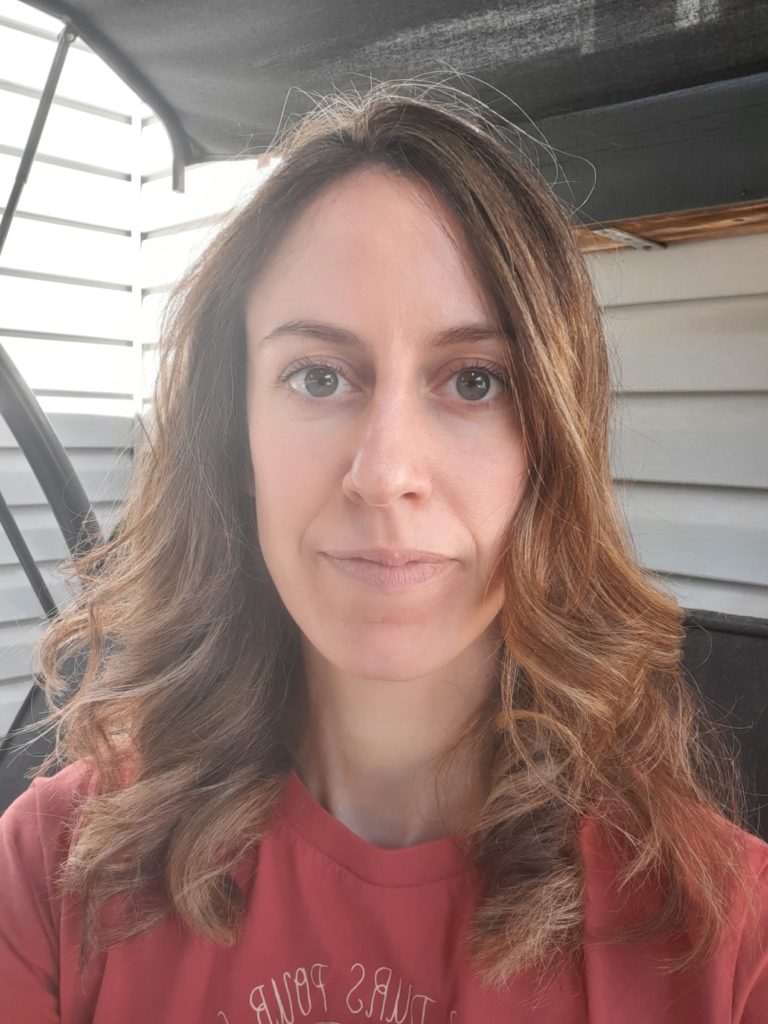Delphine Reuter manages the data and research team at the global non-profit International Consortium of Investigative Journalists. Her road into investigative journalism was not always easy. She believes a human-centered way of working and a good work-life balance are possible in journalism.

By Stephanie Jauss
When Delphine talks about her work at the ICIJ, she describes it as “a lot of problem-solving”. Having become her data and research team’s manager one month ago, new tasks have been added to her work as a data editor. Next to communicating with media partners and preparing information for reporters, a lot of her job concerns coordinating distributed teams ranging from a handful to over 100 people. “I try to make sure that everybody in my team is happy”.
The list of projects she has worked on is long and includes, among others, the Panama and Pandora Papers. Delphine is particularly excited about environment and health stories, such as last year’s investigation around environmental certifications and their involvement in deforestation and human rights violations. Another project she is proud of is the Implant Files, a 2018 investigation into the insufficient testing of medical devices and its harmful consequences for patients.
Delphine is not one of the journalists who always knew what she wanted to do. Instead, writing long emails to her loved ones during a gap year abroad in the early 2000s started her journey toward journalism. Those around her noticed her “bonne plume”, her good writing style. Excited by the possibility of traveling and talking to a lot of people, she started her journalism studies, equipped with a “rosy pink picture of journalism”.
However, she struggled to find a job in Belgium after her studies. Working in Luxembourg for a while, she realized fast daily news was not for her. She decided to go back to study – this time, at Columbia University in the US – and developed a great interest in methods she learned in the investigative journalism specialization. “But it was an old white man’s job for me. So I was like, I can’t do that.”
Back in Brussels, finding a job had not become easier. Motivated to still apply the methods she learned, Delphine worked for environmental organizations, carved out time for freelance projects on the side and continued learning about investigative methods through online resources and conferences. “It’s just a reality for women that you sometimes have to work harder.” Her experience in structuring information in spreadsheets led to her first collaboration with the ICIJ in 2014. Other projects followed after Luxembourg Leaks, until Delphine joined the ICIJ full-time five years ago.
As a new manager, Delphine has become more aware of different personality types in her team. She puts a lot of thought into improving ways of communication and offering options such as one-on-one meetings so that everyone can participate. At the same time, she tries to accept different ways of working. As a highly structured person whose desk is always tidy, chaotic processes are a challenge for her: “I tend to be a Mrs. Fix-it. But sometimes people don’t want you to fix anything.”
Looking into the future, Delphine’s plan for her team is to keep up-to-date and try out new things like fresh social media formats: “I don’t want us to become a dinosaur”. As her team is aging, she thinks about offering data fellowships for young journalists to learn from each other. Witnessing the financial struggles of many non-profit news organizations such as the ICIJ’s parent company, the Center for Public Integrity, makes Delphine sad. “It’s so much talent and so much passion and so many interesting stories that just don’t get to be told anymore”.
Her advice to aspiring journalists? Learn about pitching, build your network, and “keep the passion alive” through side projects if you cannot directly land your dream job. It has definitely worked for her.
Who is Delphine Reuter?
- Delphine works as a data editor at the International Consortium of Investigative Journalists (ICIJ), leading its data and research team.
- The Luxembourg Leaks project in 2014 started her work with the ICIJ, which she joined full-time in 2019. She has been involved in multiple cross-border investigative projects, including the Panama and Pandora Papers.
- Before joining the ICIJ, Delphine worked as a freelance journalist as well as for environmental organizations.
- She holds a master’s degree from Columbia University’s Graduate School of Journalism.
- She is also a board member of Journalismfund Europe and has taught investigative journalism at Brussels-based journalism school IHECS.
